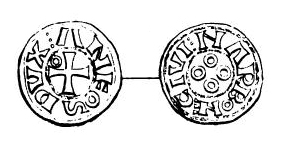Duke Of Narbonne on:
[Wikipedia]
[Google]
[Amazon]
 The title Duke of Narbonne (''dux Narbonensis'') was a title employed at various times by the overlords of
The title Duke of Narbonne (''dux Narbonensis'') was a title employed at various times by the overlords of
''Robert Ier et Raoul de Bourgogne, rois de France (923-936)''.
1910.
 The title Duke of Narbonne (''dux Narbonensis'') was a title employed at various times by the overlords of
The title Duke of Narbonne (''dux Narbonensis'') was a title employed at various times by the overlords of Narbonne
Narbonne ( , , ; ; ; Late Latin:) is a commune in Southern France in the Occitanie region. It lies from Paris in the Aude department, of which it is a sub-prefecture. It is located about from the shores of the Mediterranean Sea and was ...
, while the direct power in the city was held by the viscounts
A viscount ( , for male) or viscountess (, for female) is a title used in certain European countries for a noble of varying status. The status and any domain held by a viscount is a viscounty.
In the case of French viscounts, the title is so ...
. The prestige of the title probable attached to the fact that Narbonne had been a capital of the ancient Roman
In modern historiography, ancient Rome is the Roman people, Roman civilisation from the founding of Rome, founding of the Italian city of Rome in the 8th century BC to the Fall of the Western Roman Empire, collapse of the Western Roman Em ...
administration of the eponymous province of Gallia Narbonensis
Gallia Narbonensis (Latin for "Gaul of Narbonne", from its chief settlement) was a Roman province located in Occitania and Provence, in Southern France. It was also known as Provincia Nostra ("Our Province"), because it was the first ...
.
On the death of his cousin Bertha of Rouergue in 1065, William IV of Toulouse
William IV of Toulouse ( 1040 – 1094) was Count of Toulouse, Margrave of Provence, and Duke of Narbonne from 1061 to 1094. He was the son of Pons of Toulouse and Almodis de la Marche. He was married to Emma of Mortain, daughter of Robe ...
inherited the county of Narbonne. His brother and successor, Raymond IV, elevated the status to that of duke. Raymond's son and successor, Alfonso Jordan
Alfonso Jordan, also spelled Alfons Jordan or Alphonse Jourdain (1103–1148), was the Count of Tripoli (1105–09), Count of Rouergue (1109–48) and Count of Toulouse, Margrave of Provence and Duke of Narbonne (1112–48).
Life
Alfonso was t ...
, also employed the title with royal approval (as ''Amphusus dux Narbonensis provincie'') and his son, Raymond V
Raymond is a male given name of Germanic origin. It was borrowed into English from French (older French spellings were Reimund and Raimund, whereas the modern English and French spellings are identical). It originated as the Germanic ᚱᚨᚷ� ...
placed it first before his other titles as an implication of its importance (probably related to its Roman connection). The family was only dispossessed of the title when Raymond VI brought down the wrath of the French king for his supposed support of Cathar
Catharism ( ; from the , "the pure ones") was a Christian quasi- dualist and pseudo-Gnostic movement which thrived in Southern Europe, particularly in northern Italy and southern France, between the 12th and 14th centuries.
Denounced as a he ...
heresies.
In 1215, following the successes of the Albigensian Crusade
The Albigensian Crusade (), also known as the Cathar Crusade (1209–1229), was a military and ideological campaign initiated by Pope Innocent III to eliminate Catharism in Languedoc, what is now southern France. The Crusade was prosecuted pri ...
, Philip II of France
Philip II (21 August 1165 – 14 July 1223), also known as Philip Augustus (), was King of France from 1180 to 1223. His predecessors had been known as kings of the Franks (Latin: ''rex Francorum''), but from 1190 onward, Philip became the firs ...
granted Simon IV de Montfort, already Earl of Leicester
Earl of Leicester is a title that has been created seven times. The first title was granted during the 12th century in the Peerage of England. The current title is in the Peerage of the United Kingdom and was created in 1837.
History
Earl ...
, the titles of Duke of Narbonne and Count of Toulouse. Arnauld Amaury, then Archbishop of Narbonne, also claimed the ducal dignity and entered a dispute with Simon which was not resolved before the latter's death (1218). The title thenceforth belonged to the archdiocese.
Sources
*Cheyette, Fredric L. ''Ermengard of Narbonne and the World of the Troubadours''. Cornell University Press: Ithaca, 2001. *Lauer, Philippe''Robert Ier et Raoul de Bourgogne, rois de France (923-936)''.
1910.
Notes